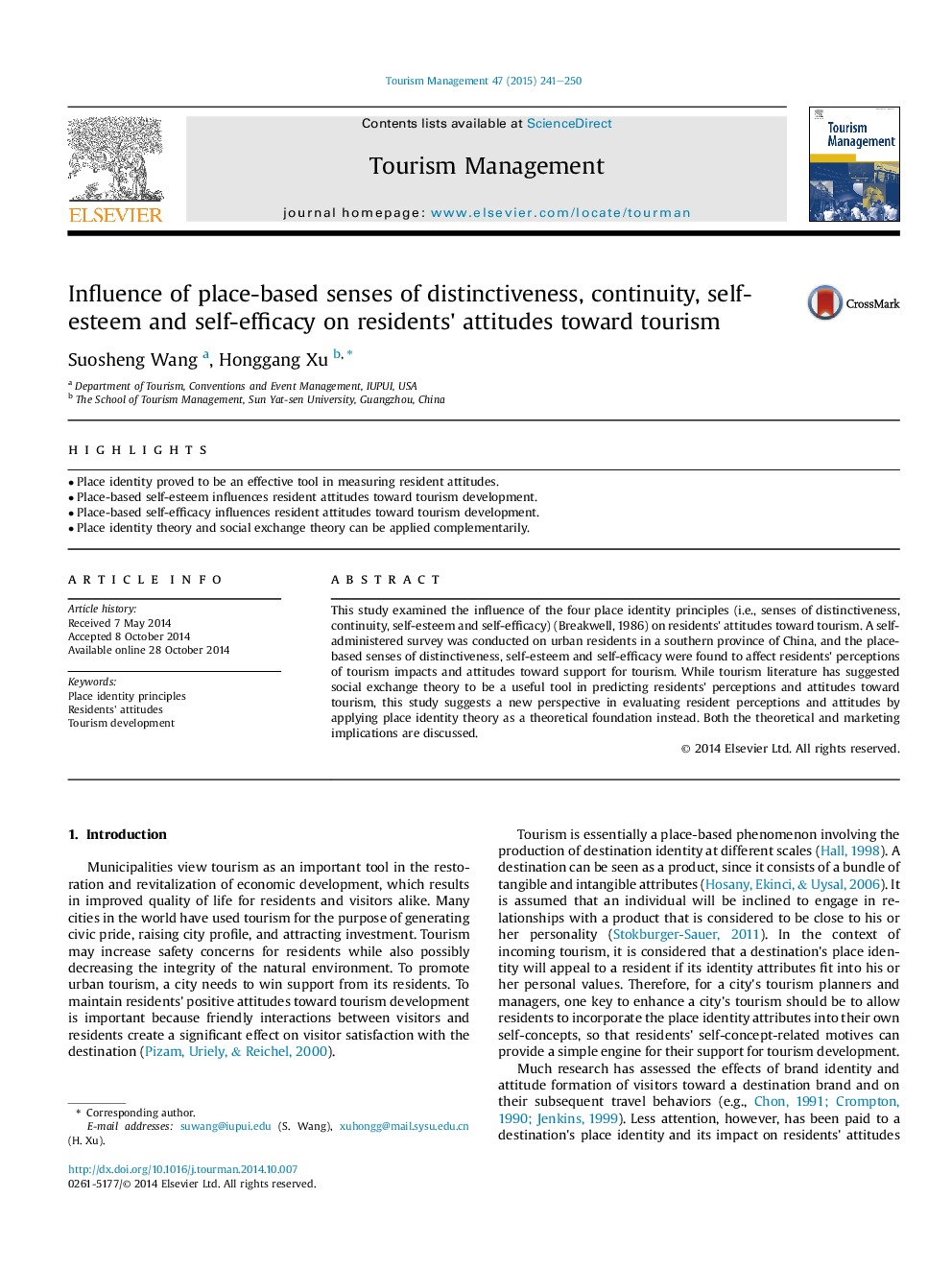| Article ID | Journal | Published Year | Pages | File Type |
|---|---|---|---|---|
| 1011977 | Tourism Management | 2015 | 10 Pages |
•Place identity proved to be an effective tool in measuring resident attitudes.•Place-based self-esteem influences resident attitudes toward tourism development.•Place-based self-efficacy influences resident attitudes toward tourism development.•Place identity theory and social exchange theory can be applied complementarily.
This study examined the influence of the four place identity principles (i.e., senses of distinctiveness, continuity, self-esteem and self-efficacy) (Breakwell, 1986) on residents' attitudes toward tourism. A self-administered survey was conducted on urban residents in a southern province of China, and the place-based senses of distinctiveness, self-esteem and self-efficacy were found to affect residents' perceptions of tourism impacts and attitudes toward support for tourism. While tourism literature has suggested social exchange theory to be a useful tool in predicting residents' perceptions and attitudes toward tourism, this study suggests a new perspective in evaluating resident perceptions and attitudes by applying place identity theory as a theoretical foundation instead. Both the theoretical and marketing implications are discussed.
